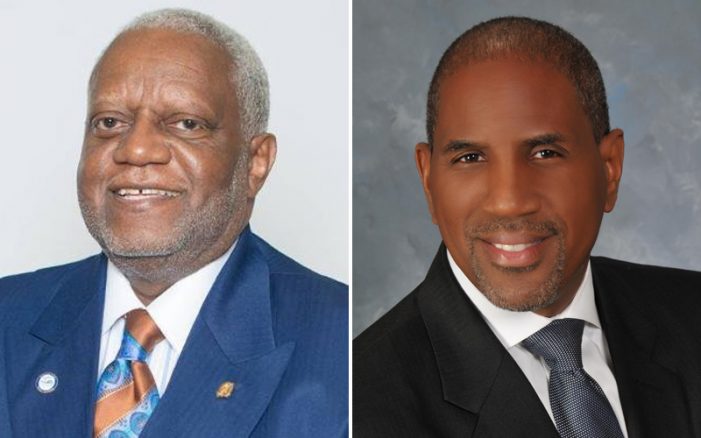There may be an upset in the race for Miami-Dade School Board District 1, which encompasses Miami Gardens, Carol City and North Miami.
encompasses Miami Gardens, Carol City and North Miami.
The race for District 7 is pretty much sewn up. Unfortunately, Aster Bato Mohammed is no match for Lubby Navarro, the school board lobbyist appointed by Gov. Rick Scott two years ago to fill the position vacated by Carlos Curbelo‘s run for Congress.
But incumbent Miami-Dade School Board Member Wilbert “Tee” Holloway is facing a real, live challenge, not from former State Rep. James Bush III — who has barely campaigned — but from Steve Gallon III, a former principal at Northwestern Senior High with considerable community support and a thicker campaign wallet, despite some controversy.
Gallon has raised more than Holloway, with almost $93,000 reported as of Aug. 25. He has spent all but about $10K of that with more than $81,000 in expenditures. That’s more than the total of what Holloway has reported raising ($76,000) in the  same time period. But the incumbent has spent about $55,000, so he has twice as much left as Gallon.
same time period. But the incumbent has spent about $55,000, so he has twice as much left as Gallon.
Many think Holloway, who recently retired from his job at AT&T, should retire from the school board also. Not because he is 68, but because he has been there for nearly a decade. Like Navarro, he was appointed by then Gov. Charlie Crist when he was termed out of the Florida House in 2007 to fill the seat of Robert Ingram, who had died. Holloway easily beat a half-hearted challenge in 2008 and was re-elected unopposed in 2012.
Gallon, 47, was a teacher and then became principal at Holmes Elementary, taking that school off the critical list before he became principal at Northwestern Senior High. He served there for seven years — the longest tenure of any principal at that high school — and was promoted in 2005 to the district level department director for school operations and alternative education. In 2008, Gallon was picked to become superintendent of Plainfield Public Schools in central New Jersey. But that ended in controversy two years later after he was arrested for allegedly using a false address to enroll his godsons in school. The charges were dismissed — but only after Gallon agreed to never seek work in New Jersey schools again.
He came back to Miami-Dade to start an education consulting company and his work with some local charter schools with financial troubles became part of a state ethics investigation. But, in the end, Gallon was not found to have violated any rules.
He says controversies have been overblown and that they overshadow his accomplishments, such as the creation of new high schools and improving school safety. “My life and my career and my legacy is far more than a snippet of a few years — not actually a few years, a moment of time — in Plainsfield, New Jersey,” he told the Miami Herald.
And while Holloway has the endorsement of the teachers’ union (most likely because he’s the incumbent and they got a raise this year), Gallon has the support of AFSCME and some of the district’s most notable community leaders — Betty Ferguson and T. Willard Fair — who black voters actually listen to.
Maybe that’s because he has five or six school with consistent Fs in his district year after year. He’s had time to fix it and hasn’t been able to move the needle forward. But he points to improved graduation rates in the district, the opening of new schools, more contracts with minority-owned vendors and the reform the student suspension policy as achievements.
This race took a nasty turn earlier this month when Holloway — who was chairman of the James E. Scott Community Association (JESCA) when it filed for bankruptcy in 2009 — threw his vice chairman, Larry Handfield, under the bus came under the microscope. The nonprofit was one of the largest social service agencies in the U.S., providing educational and support services for children, at-risk youth and elderly residents in some of the 305’s poorest neighborhoods. Holloway said he was only at JESCA “in name only” and didn’t handle finances.
Records and history show that it was Handfield who alerted the county about JESCA’s spending of federal and county funds — funds earmarked for programming and services — on administrative salaries and operational costs (read: executive perks). This mess is arguably what cost former Miami-Dade Commissioner Dorrin Rolle, who was a $200,000-a-year president at JESCA, his elected office in 2010.
It’s possible that it just took a little longer to claim Holloway.

